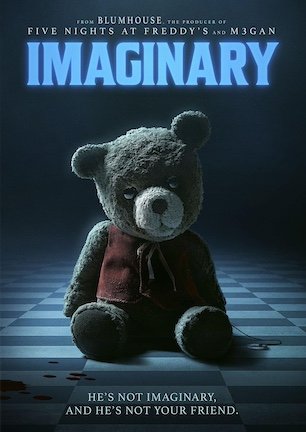Studio: Paramount Pictures
Director: Roman Polanski
Writer: Roman Polanski, Ira Levin
Producer: William Castle
Stars: Mia Farrow, John Cassavetes, Ruth Gordon, Sidney Blackmer, Maurice Evans, Angela Dorian, Charles Grodin
Review Score:
Summary:
A pregnant woman comes to believe that a coven of witches has designs on her unborn child, and her husband may be a part of their cult.
Review:
Few actresses achieve a synergy with their roles in the way that Mia Farrow does with Rosemary Woodhouse. Ira Levin, author of the original “Rosemary’s Baby” book, no doubt dedicated his sequel novel “Son of Rosemary” to her because even the character’s creator admired and acknowledged that Farrow transcends text on a page to turn Rosemary into an incredibly well-realized personality.
With her pixie-like frame and Vidal Sassoon boy’s haircut, Mia Farrow brings a physical presence that suggests vulnerability, meekness, and naivety. Really, Rosemary is anything but.
Rosemary is actually wise, resourceful, and in possession of a Sherlock Holmes-like perception. On her first visit to the Castevets’ apartment, Rosemary notices photographs removed from the walls with an out of place portrait hanging in their place. After the deed is done with the devil himself, she is quick to clue into Guy suddenly looking at her with a different glimmer in his eye. From Roman’s pierced earlobe to Guy returning home with theater makeup still on his face, Rosemary is keyed into details the viewer does not even see without her pointing to them first.
Rosemary is unconventional as a horror heroine in that there is rarely a moment where her actions appear baffling or unmotivated. Because her own suspicions are in tune with the gradual changes to her environment at the same pace or even ahead of the audience, there is rarely cause to say, “now why would she do that?” Combined with her confidence to deliver sarcastic quips when called for and a sassy attitude when necessary, Rosemary reads as so likably intelligent that viewing her with sympathetic admiration is the only option.
First glance suggests that her struggling actor husband Guy chooses the left hand path out of career desperation when he is more influenced by defeated disregard than anything else. Casual dismissals of Rosemary’s declarations and a narrow focus on personal woes at the theater give him a flippant blindness towards the consequences of his barely coerced commitment. John Cassavetes’ performance may be overshadowed by those of Mia Farrow and Ruth Gordon, but he is no less nuanced in how many subtle complexities he puts underneath his face.
The brilliance in casting Ruth Gordon in her Academy Award-winning role as sweetly sinister Minnie Castevet is that as colorfully as she plays the part, there is still a subdued smartness to her manipulative machinations. Her comic relief lowers protective guards as the not-so-secret weapon disarming expectations with a sitcom-like presence. Like everyone else on the roster, Gordon layers equal parts doubt and charm to manifest an uneasy presence of uncertain purpose.
Christopher Komeda’s score aurally connects the visual dots with a combination of violins and synth sounds that genuinely earns the adjective “haunting.” The echoing la-la-la’s bookend the mood in between perfectly, and their effectiveness would go on to become an often imitated staple of 1970’s horror films like “Deep Red” and “The Amityville Horror.”
Dark wood panels and cracked interior walls are not what makes the fictional Bramford building so creepily imposing. How director of photography William Fraker frames deceptively simple setups of routine phone calls and after dinner cigarettes instills an odd sensation of secretive deception.
Usually from Rosemary’s point of view, the camera frequently points down long hallways at open doors that are figuratively closed with the way they hide faces just out of frame. Rosemary and viewers alike are intentionally frustrated into puzzled wonderment over what is taking place around those half-glimpsed corners. Those racing thoughts manifest simmering terror through suggested ideas, in much the same way that the finale unnerves through the expression on Rosemary’s face and by not showing what lies inside the black-draped cradle with an upside-down cross for a mobile.
The real horror of “Rosemary’s Baby” is less about the direct theme of satanic perversion in a commonplace world. True terror comes more from the feeling of not being able to see what is on the other side of a wall, of being unsure of your own instincts, and in not being able to trust anyone to mirror his/her outward appearance. That conflict is most overwhelming while observing the mania in Rosemary’s eyes as she recounts her unbelievably bizarre tale for a rightfully incredulous Dr. Hill, yet feeling her frustration because we know she is relaying an unfortunate truth.
While moments like the pivotal scene of impregnation and the climactic reveal of a shrouded bassinet offer occasional visceral shocks, the key triumph of “Rosemary’s Baby” is how pervasive and invasive its sense of silently looming evil really is. Inescapable dread drenches every frame and constantly casts ominous shadows across what would otherwise be drab depictions of everyday events. Through a perfect storm of acting, characterization, direction, sight, and sound, Roman Polanski takes a sensational nightmare of inconceivable proportions and makes it frighteningly plausible in spite of its inherent absurdity.
Review Score: 95







If you want to see impossible amounts of blood explode crimson colors like the world’s worst version of a gender reveal, well, “Abigail” at least has that.